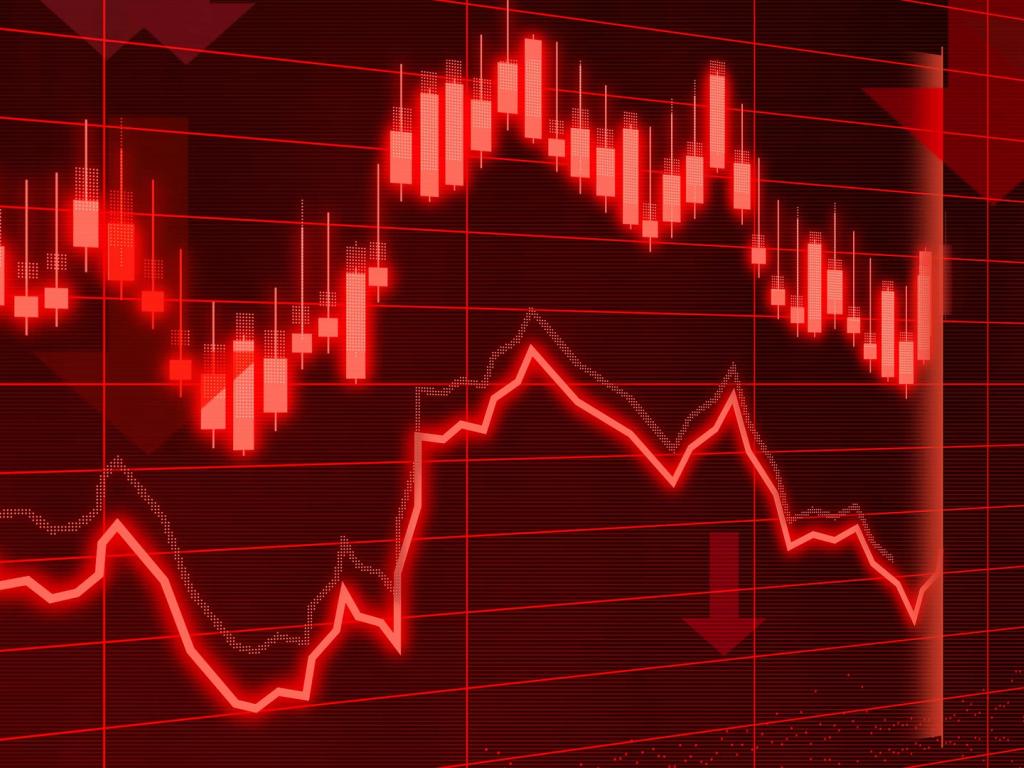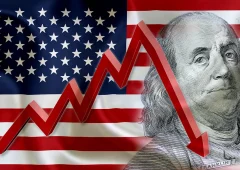Billionaire Warns of Economic Downturn and Dollar Weakness
30.08.2024 18:30 2 min. read Alexander Stefanov
Billionaire investor Ray Dalio has recently raised concerns about a potential economic downturn over the next four years and its impact on the U.S. dollar.
Dalio, founder of Bridgewater Associates, pointed to Japan’s experience as a cautionary tale. He noted that Japan’s currency weakened significantly due to extensive money printing, leading to an 80% loss in purchasing power for its citizens. He warns that a similar fate could befall the U.S. if current economic policies continue.
Dalio predicts that increasing debt servicing costs in the U.S. could restrict consumer spending and widen the gap between fixed debt repayments and actual revenue. This, in turn, could put downward pressure on the U.S. dollar.
He emphasizes that a significant red flag would be a large-scale sell-off of U.S. bonds by investors. Such a move would likely prompt intervention from the Federal Reserve and other central banks. Dalio believes the most critical period for these issues could arise during the next economic downturn, which he expects within the next four years.
Additionally, recent U.S. spending forecasts highlight growing financial concerns. The federal government’s expenditure is projected to reach $6.8 trillion in 2024, the highest since 2021, potentially further straining the U.S. dollar and increasing the budget deficit. Interest payments and debt-related expenditures are expected to total nearly $1.8 trillion, while projected revenues of $4.7 trillion will result in a $1.9 trillion budget deficit, the largest in three years.
-
1
Trump Targets Powell as Fed Holds Rates: Who Could Replace Him?
27.06.2025 9:00 2 min. read -
2
U.S. PCE Inflation Rises for First Time Since February, Fed Rate Cut Likely Delayed
27.06.2025 18:00 1 min. read -
3
Key U.S. Economic Events to Watch Next Week
06.07.2025 19:00 2 min. read -
4
Gold Beats U.S. Stock Market Over 25 Years, Even With Dividends Included
13.07.2025 15:00 1 min. read -
5
U.S. Announces Sweeping New Tariffs on 30+ Countries
12.07.2025 16:30 2 min. read
US Inflation Heats Up in June, Fueling Uncertainty Around Fed Cuts
U.S. inflation accelerated in June, dealing a potential setback to expectations of imminent Federal Reserve rate cuts.
Gold Beats U.S. Stock Market Over 25 Years, Even With Dividends Included
In a surprising long-term performance shift, gold has officially outpaced the U.S. stock market over the past 25 years—dividends included.
U.S. Announces Sweeping New Tariffs on 30+ Countries
The United States has rolled out a broad set of new import tariffs this week, targeting over 30 countries and economic blocs in a sharp escalation of its trade protection measures, according to list from WatcherGuru.
Key U.S. Economic Events to Watch Next Week
After a week of record-setting gains in U.S. markets, investors are shifting focus to a quieter yet crucial stretch of macroeconomic developments.
-
1
Trump Targets Powell as Fed Holds Rates: Who Could Replace Him?
27.06.2025 9:00 2 min. read -
2
U.S. PCE Inflation Rises for First Time Since February, Fed Rate Cut Likely Delayed
27.06.2025 18:00 1 min. read -
3
Key U.S. Economic Events to Watch Next Week
06.07.2025 19:00 2 min. read -
4
Gold Beats U.S. Stock Market Over 25 Years, Even With Dividends Included
13.07.2025 15:00 1 min. read -
5
U.S. Announces Sweeping New Tariffs on 30+ Countries
12.07.2025 16:30 2 min. read


